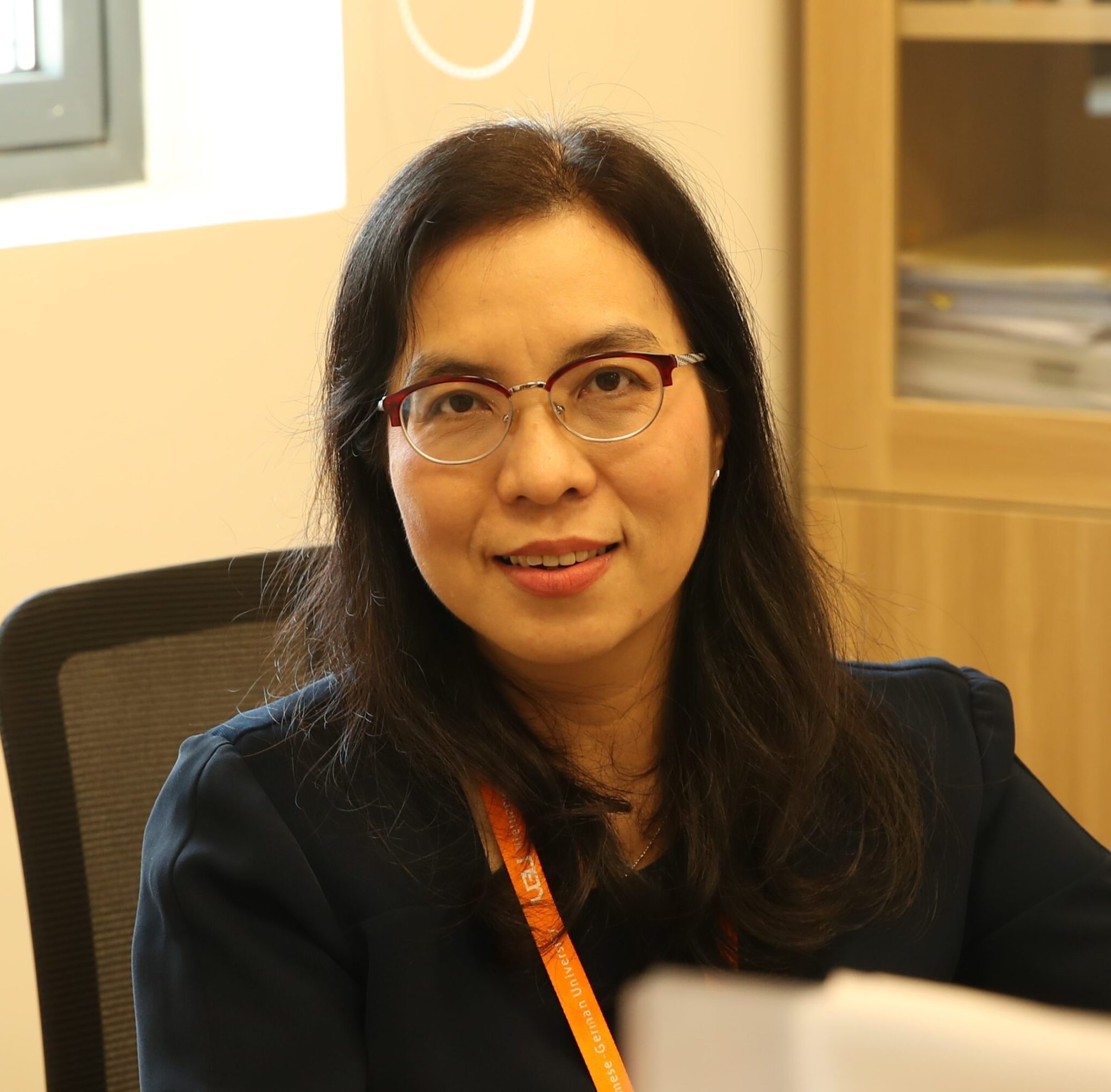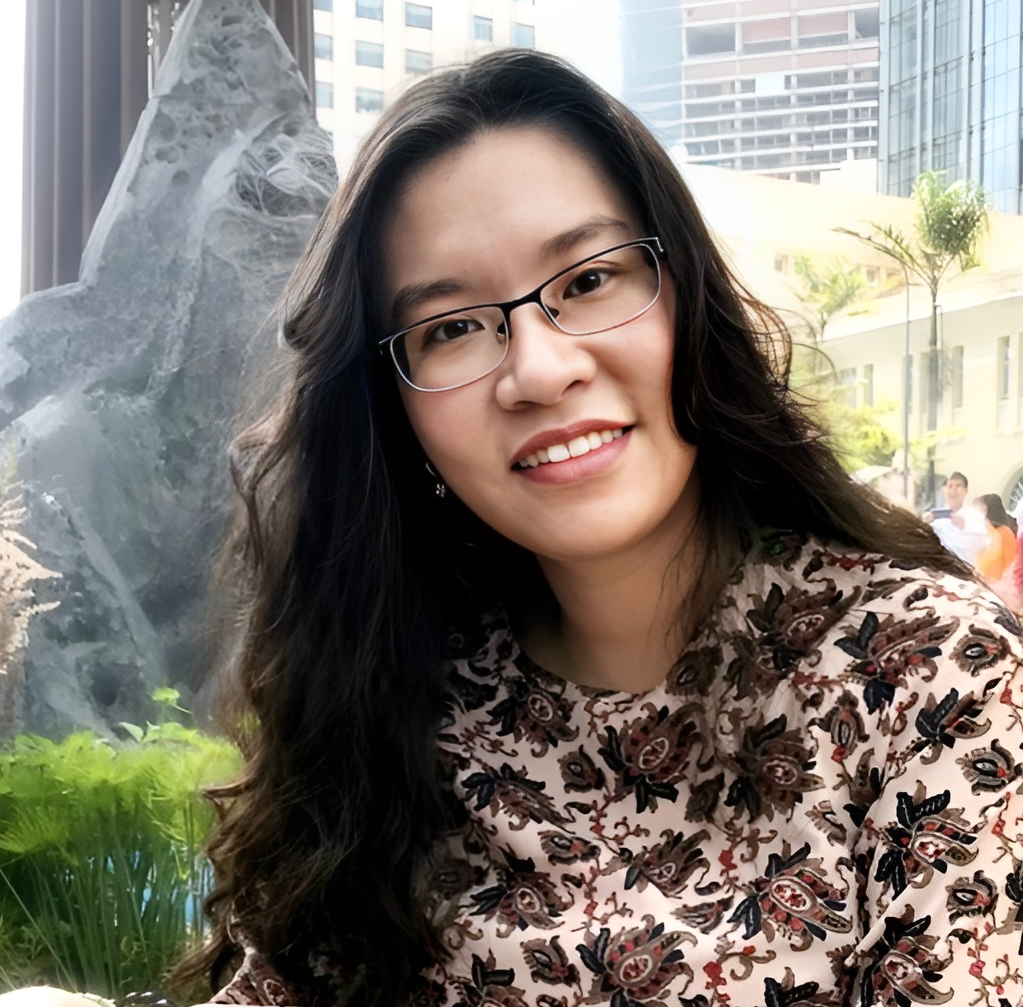
Our Speakers


About the speaker
Dr. Le Thi Thu Huong is the Academic Coordinator, Bachelor study program in Architecture (ARC) cum Senior Lecturer, Master study program in Sustainable Urban Development (SUD) at Vietnamese-German University (VGU). She received Ph.D. and M.Sc. in Urban Environmental Management at the Asian Institute of Technology (AIT), Thailand; Master’s and Bachelor’s degrees in Architecture at the University of Architecture of Ho Chi Minh City (UAH), Vietnam. Before working for VGU, Dr. Huong worked for AIT, the Institute for Global Environmental Strategies (IGES, Japan), Assumption University, and other international organizations in Thailand as a lecturer and researcher. Her research interests cover different aspects and issues of architecture, urban planning, and sustainable development. She has done several research projects as well as international publications in these fields.
M.Sc. Arch. Nguyen Thi Huong Lan is a Ph.D. student and Teaching Assistant in the Master study program in Sustainable Urban Development (SUD) and Bachelor study program in Architecture (ARC) (ARC) at Vietnamese German University (VGU).
She worked for over 7 years in urban planning and landscape design.
Her recent research concentrates on urban development, the phenomenon and trend of gated communities in Ho Chi Minh City, sustainable landscape assessment framework and project management in the architecture field.
Presentation highlights
- Describe the types and characteristics of gated communities
- Determine the main reasons for this trend in the case study
- Raise concerns about conflicts between the gated community model with the concept of inclusive urbanization
Paper Abstract
Gated Community vs. Inclusive Urban Development: A Case Study of the Old District 2, Ho Chi Minh City, Vietnam
The “Gated community” concept has been a topic of interest since the 1990s and is increasingly becoming a popular urban model worldwide (Roitman, 2010). This project model restricts access to people outside the community, and it was born because of increased fear of crime, maintenance of property values, development of individualism, etc. (Sarah, 2007). Meanwhile, “Inclusive urbanization” seeks to solve problems of accessing urban services and improve the equity of urban socio-economic structure by ensuring that all people have equal rights and opportunities to access the same service level (Xavier and Daniel, 2017). These two trends lead to a gap between the reality of housing development and the desire for urban inclusivity. To reflect this phenomenon, this paper examines a case study of the old District 2 (currently, it belongs to Thu Duc sub-city), Ho Chi Minh City, Vietnam, where many gated communities are located. District 2 was established in 1997 and gradually developed into a new urban area with vibrant commercial activities and diverse residential typologies. It has become an expatriate zone for the expats and their families, especially in the gated ones.
Using the methods of field observation, secondary research, and mapping, the article will describe the types of gated communities and determine the main reasons for this trend. It raises concerns about inclusivity in urban development, an international discourse in the last few decades. The research paper is also a premise for further studies on the housing trends in Ho Chi Minh City, which will help find ways to harmonize the desire for inclusive urban societies and residential development needs.
Quick Links
Contact Info
- Ringroad 4, Thoi Hoa Ward, Ben Cat Town, Binh Duong Province, Vietnam
- (+84) 28 3820 3240
- auc2024@vgu.edu.vn
Newsletter
Stay updated with our latest news and exclusive offers – subscribe to our newsletter below

Copyright © 2023 by Vietnamese-German University. All rights reserved.